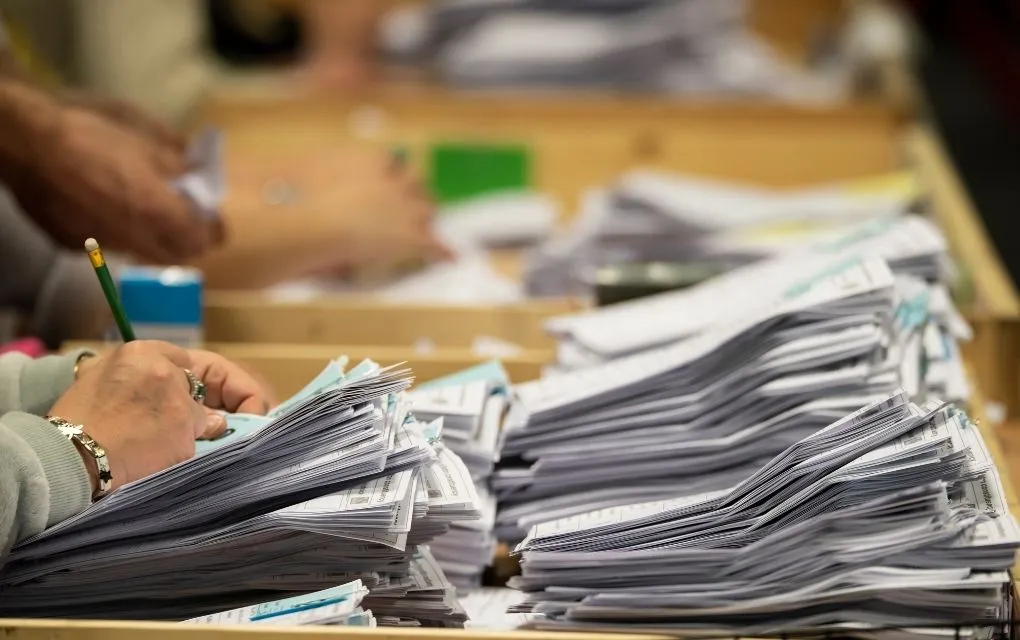Too few voting machines, too few voting locations, long lines, limited days and hours, no sharing of water or food to those in line – these are just a few of the vote/voter suppression tactics put in place by Repubs across the country to limit voting by persons that tend to vote for Democrats. It doesn’t matter whether you call it vote suppression, voter suppression, or Jim Crow 2.0, it is an attack on two fundamental principles of our democracy: the right to vote, and the right to equal treatment under the law. Make no mistake – voter suppression is bad.
But there is another threat that is worse. Much worse.
Taking over our elections
Lost in all the uproar over vote suppression is a little-discussed provision of these new election laws that gives state legislatures more power over how elections are run, including throwing out local boards of elections and installing their own boards. In multiple states, there are laws proposed, or even passed, that would allow the legislature to have final approval over election results, including certifying an election as legitimate. And, there is a movement among some on the right to have state legislatures appoint the official electors for whatever candidate they wish, regardless of how the people in that state voted.
For example, a new law in Arkansas requires local election boards to refer election law violation complaints to the State Board of Election Commissioners, which is made up of five Republicans and just one Democrat.
A new Georgia law allows the legislature to replace a local election board with a “election superintendent” that the legislature chooses. This person would then take over all the duties of the local board, including hiring and firing staff, and certifying the election results.
And the Pew Trusts reports that “GOP legislators in at least 14 states have enacted 23 new laws that empower state officials to take control of county election boards, strip secretaries of state of their executive authority, or make local election officials criminally or financially liable for even technical errors, according to Protect Democracy, a left-leaning Washington, D.C.-based voting rights nonprofit.” The report from Protect Democracy also notes that as of last June, 216 bills had been introduced across the country that allow state legislatures to “politicize, criminalize, or interfere with elections.”
A bloodless coup through election laws
This is an attack on the foundation of our democracy, just as much as the January 6th insurrection was an attack. In fact, it is actually worse, because it is both bloodless and legal.
If the voters are no longer to choose their elected officials via the ballot box, then our democracy has ceased to exist. We may have elections, but they will be just for show.
For now, most of the laws seem focused on the presidential election and the choosing of electors. But why would it stop there?
Imagine if the Kentucky General Assembly got to replace the Louisville board of elections, and install their own people. If that new board decided there was fraud in many of the Democrat-leaning precincts in the city, and threw out those votes, what would that mean for the election results? Andy Beshear was elected governor by about 5,000 votes across the state. Think that partisan elections officials could “find” that many votes, just in Louisville?
And if you think this is far-fetched, that it would “never happen here,” think again. Actual laws are already in place, and more are under consideration. And do you think the Federalist Society judges appointed by Trump and McConnell would necessarily overturn these laws?
Voting rights and election subversion – these are the twin threats to American democracy. All Americans who care about the “American experiment” must come together, no matter their party, and work to protect both our right to vote and our right to free, fair, non-partisan-run elections.
Otherwise, the United States will come to represent this quote from dictator Joseph Stalin:
I consider it completely unimportant who in the party will vote, or how; but what is extraordinarily important is this—who will count the votes, and how.
--30--








